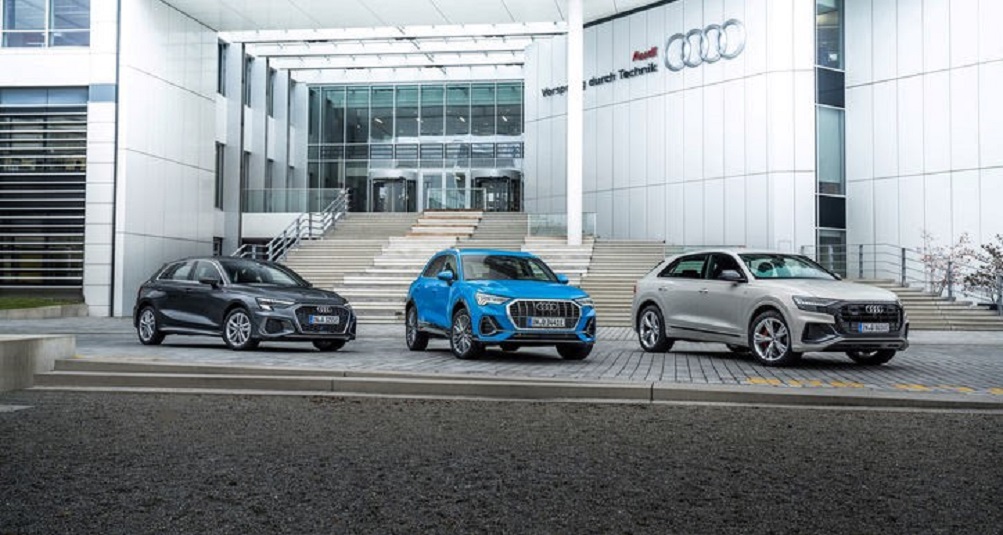 Average CO2 emissions of new models are 101.5 g/km in Europe, more than two million grams below the legally required level – an improvement of around 20 percent compared to the previous year
Average CO2 emissions of new models are 101.5 g/km in Europe, more than two million grams below the legally required level – an improvement of around 20 percent compared to the previous year
The company made an important contribution to the results of the Volkswagen Group
Audi e-tron series and plug-in hybrids have a positive effect on the fleet figures
Board Member for Sales and Marketing Hildegard Wortmann: “In 2021 we are extending our range of electrified models by two new segments”
Audi has more than fulfilled its CO2 fleet target for Europe in 2020 on the basis of preliminary figures. With a calculated average of 101.5 g/km, the company lay well below the legally required value of 105.6 g/km. This result corresponds to an improvement of around 20 percent compared to the average of the previous year.
In this way, the brand within the Volkswagen Group made a positive contribution to the total fleet result.
“Sustainability is a central pillar of our corporate strategy. We regard the CO2 fleet value as an important indicator and will press ahead strongly with our electrification offensive,” says Hildegard Wortmann, Member of the Executive Board of AUDI AG for Sales and Marketing.
“We will continue to consistently increase the proportion of battery-electric and electrified models in our portfolio. In 2021 we are launching attractive all-electric models in two further different segments.”
Audi will shortly introduce the Audi e-tron GT, an emotional Gran Turismo and the brand’s highest-performance electric car. It will be followed by the Audi Q4 e-tron, the first Audi model based on the high-volume modular electrification platform (MEB) of the Volkswagen Group.
The basis for calculating the fleet figures are the approximately 585,000 newly registered vehicles in the 28 countries of the European Union and in Norway and Iceland. A positive influence on the fleet figure derives in particular from the significant rise in deliveries of the all-electric Audi e-tron and e-tron Sportback, as well as the brand’s plug-in hybrids.
In 2020 Audi already had nine plug-in hybrid models in the portfolio, some of them in major series such as the A3, A6, A7 Sportback, Q7 and Q8 – from the compact range to the top range. By 2025 Audi aims to supply more than 30 electric models, around 25 of them fully electric.
Pre-sales of the Audi Q3 45 TFSI e (fuel consumption combined in l/100 km*: 1.7 – 1.4; power consumption combined in kWh/100 km: 16.0 – 14.4; CO2 emissions combined in g/km: 39 – 32) and the Audi Q3 Sportback 45 TFSI e (fuel consumption combined in l/100 km*: 1.7 – 1.4; power consumption combined in kWh/100 km: 15.9 – 14.6; CO2-emissions combined in g/km: 38 – 33) started only at the beginning of this year.
Transformation into a provider of sustainable premium mobility
In this way AUDI AG is continuing its transformation into a provider of sustainable premium mobility, and is at present the biggest premium maker of electric vehicles among the three German premium brands. Demand for the successful models in the e-tron series rose by 79.5 percent (47,324 vehicles) compared to the previous year.
Globally the Audi e-tron is the best-selling electric vehicle of German premium manufacturers. In Norway it was the highest-selling model of all in 2020. In Germany the Audi e-tron series was able to more than double its sales volume in the final quarter of last year in comparison to 2019.





























